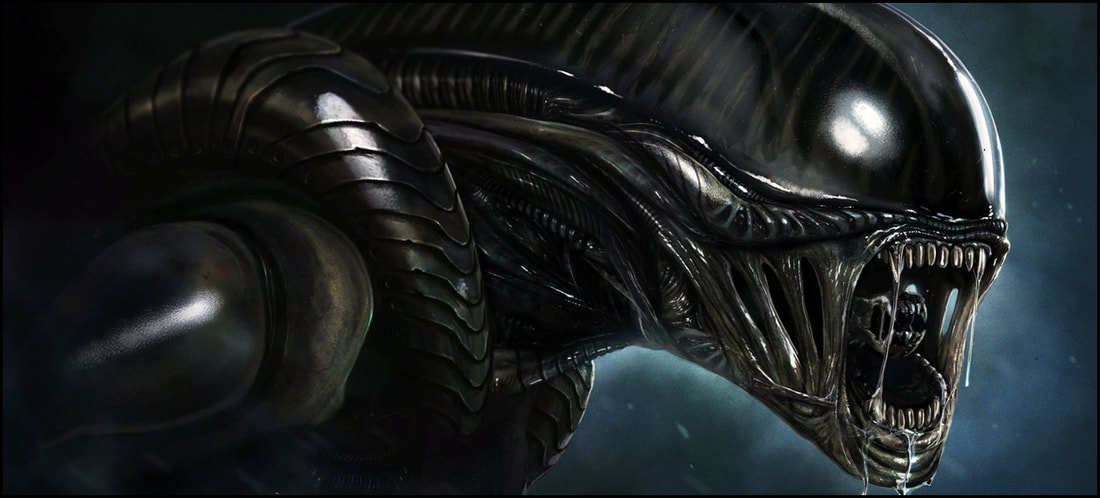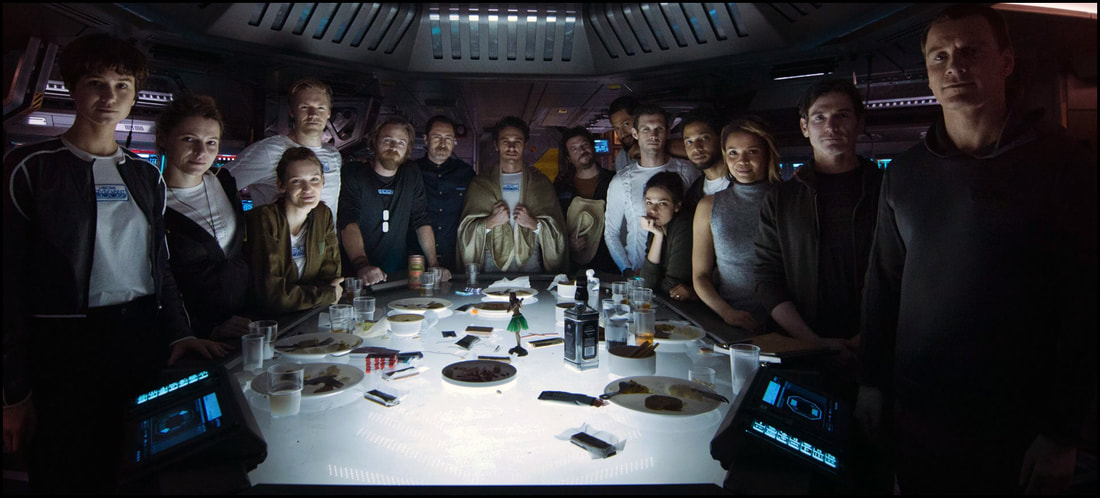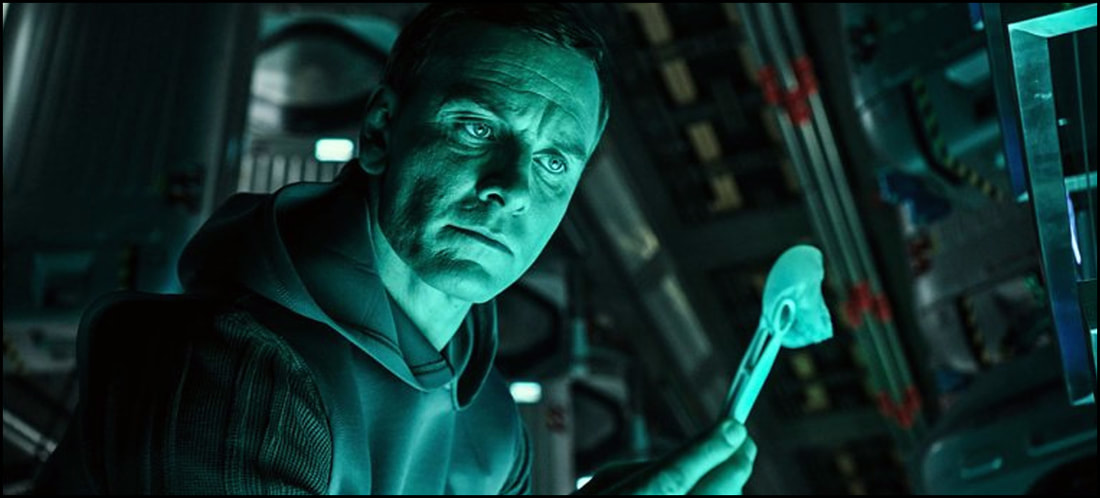Alien: Covenant Is A Little Too Much 'Been There, Done That'
Generally speaking, sequels tend to dilute the power of the original. In an almost parasitic way, they “leech” off the strength of what came before in hopes of increasing a new chapter’s unproven , untested potential. Instead of boldly going where no one has gone before, these follow-ups tend to take what’s already been established and plunk that down in a new setting with new effects; and studio executives hope that audiences will continue to feed from the trough without noticing very little new flavor has been added to the gruel.
Now, I’ll also admit that this isn’t always the case. The Marvel films, in particular, have demonstrated a modern talent to add something to the mythology with successive installments, widening its comic book universe with memorable additions worth their own screen time. Superman II did the same back in the 1980’s, giving Big Blue himself villains of equal strength with unmatched ruthlessness, requiring him to use his brain instead of his solar-powered brawn to defeat them in the end. And – dare I miss? – The Empire Strikes Back launched Luke and his friends on their own near-spiritual journey to find love, loss, and the Light Side of the Force in that galaxy far, far away.
In contrast, the Alien franchise has had less-than-stellar results. While Alien (1979) and Aliens (1986) are a terrific one-two punch ably demonstrating how to successfully broaden the world-building cinema and expand the fan base, Alien 3 is often maligned as a disappointing miscalculation that killed much of the property’s cinematic appeal by burying it under layers of gloom. Alien: Resurrection has been called the franchise’s “bad joke” largely owed to Joss Whedon’s surprisingly uninventive script and Jean-Pierre Jeunet’s equally uninteresting direction. I won’t even trouble with examining AvP: Aliens Vs. Predator (2004) or Aliens Vs. Predator: Requiem (2007) not because they don’t deserve it but rather because it’s pretty clear that the films were popcorn films and weren’t perhaps clearly thought out as chapters in the overall arch of the Alien franchise.
Thus we arrive at the current destination involving Prometheus (2012) and – more recently – Alien: Covenant.
Alien: Covenant (2017) takes place ten years after Prometheus's events, and – as even the title proves – the director, the screenwriters, and all players were (finally) aware of whether or not their chapter was part and parcel of the space saga. To its credit – and maybe its detriment – Covenant expands upon most of the themes explored in its prequel, namely some ideas involving divinity, creation, and faith.
From the film’s IMDB.com profile:
“The crew of a colony ship, bound for a remote planet, discover an uncharted paradise with a threat beyond their imagination, and must attempt a harrowing escape.”
If some of what I wrote above is unclear, then let me state this emphatically: time itself has helped Prometheus inevitably ‘find’ an audience, and I suspect the same will be said of Covenant.
What is learned as the story develops into the second half is that these hungry critters are the manufacture of the last film’s synthetic David (as played by Michael Fassbender). Not only did he loose them on this unsuspecting world but also he’s spent the better part of the last ten years tinkering with their genetics, dramatically expanding upon the whole “son becomes the father” theme of Prometheus (where David was paired up with Peter Weyland – his maker – as played by Guy Pearce). For reasons never quite made clear, David has turned all psycho and is hell-bent on wiping out mankind, seeing it as an inferior species the way Science Fiction has painted artificial intelligence over the past few decades.
However, complicating David’s quest to fulfill our extinction is Walter, Covenant’s synthetic (also played by Fassbender). Walter is the improved David, one who has the added benefit of evolution, that fateful process science says takes place after life itself is created. Only a dullard would fail to see that Covenant exists largely for these two of mankind’s children to textually bump heads; and the tail end of the script ends up being a somewhat hackneyed, big screen version of 1960's Star Trek where Good Kirk and Bad Kirk share screen time to duke it out mano a mano.
Unfortunately, everyone else in Covenant feels very much like a character we’ve seen before, perhaps even in the same franchise. Katherine Waterson’s Daniels – another of the film’s protagonists – is a smaller version of Sigourney Weaver’s Ripley but with vastly kinder eyes; she’s inflicted with a tragedy at the film’s outset that largely sets her character’s arc in motion. Billy Crudup’s Oram assumes the captaincy after said tragedy, but as he’s a Faith-based character it’s pretty clear right up front that not only will all of his decisions be flawed but also he’s destined for the graveyard once the wheel turns. (Think of Charles S. Dutton’s scripture-quoting preacher from Alien 3 but lose all of the theatrical bravado.) Danny McBride’s Tennessee evokes the joint aura of Alien’s Brett and Parker (played by Harry Dean Stanton and Yaphet Kotto, respectively), serving as little more than a foul-mouthed Blue Collar addition to a largely White Collar crew.
If you’re a major studio and you’re looking to capitalize on the success of Alien, then why not put “Alien” in the title of all of your releases, even those that have nothing to do with that universe? Next summer, check out “Alien: The Simpsons.” And after that “Alien: Facehuggers For The Planet Of The Apes”? Coming this holiday season: “Alien: Home Alone 3”!
When all is said and done, I suppose the least that a franchise fan can hope for is that all subsequent chapters add something of substance to the legacy -- however small -- and I’m honestly at a loss as to what might stem from Alien: Covenant. As I all too often have to say, it isn’t a bad film … it’s just flawed. And utterly devoid of hope, a sentiment also present in every previous installment thus far.
What is more singularly human than "hope"?
In the interests of fairness, I’m pleased to disclose that the fine folks at 20th Century Fox provided me with the digital access to view Alien: Covenant for the expressed purposes of completing this review; and their kind contribution to me in no way, shape, or form influenced my opinion of it.





 RSS Feed
RSS Feed